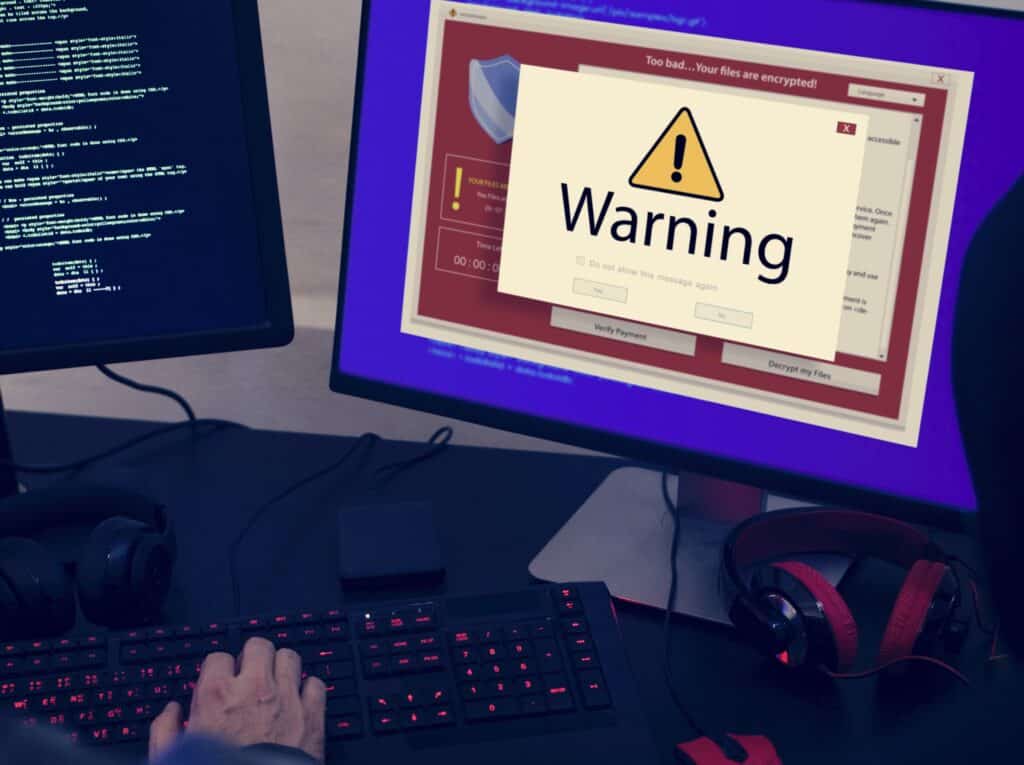“Rather than fearing or ignoring cyber attacks, do ensure your cyber resilience to them.”
Stephane Nappo’s logic is pure gold, particularly in today’s world, where cyber crimes are escalating daily. Any cyber security specialist will tell you it’s almost impossible to achieve 100% online safety, even when you’re extra careful. Consequently, buying personal cyber insurance makes sense and should be part of your cyber resilience strategy.
Sadly, cybercriminals can reign havoc on your personal and financial life if they manage to steal your sensitive and confidential data. Carrying personal cyber and fraud insurance is a smart way to dig yourself out of a hole that a cyber attack may throw you in.
And given the confusion and anxiety that cyber attacks spring in a victim, knowing you have someone (your cyber insurance policy) to help you sort out the resulting mess is nerve-settling.
Let’s look into personal cyber insurance and learn the fine details.
When Is Personal Cyber Insurance Necessary?
As long as you’re on the internet, you’re at risk of a cyberattack. It may be a phishing or password attack, cyberbullying, or a case of identity theft. You may have heard the axiom, “The only way to stay safe on the internet is not to be on the internet.”
But the truth is you may not have the luxury to stay offline since everything happens online, from remote working, banking, and consulting your physician to connecting with family and friends.
Thus, staying off the internet isn’t an option. A far better strategy is purchasing personal cyber insurance to cover losses you may incur if you fall victim to cybercrime. While other methods of reducing cyber attack risks exist, such as leveraging identity theft protection services or using anti spyware software, they don’t cover the financial losses incurred.
A personal fraud insurance policy offering financial reimbursements is a lifesaver, given the hefty financial implications of cyber attacks. According to the FBI’s 2021 Internet Crime Report, there were 847,376 complaints of internet scams in 2021, amounting to $6.9 billion.
With such astronomical figures in monetary losses, having personal cyber insurance is a great relief. On the contrary, without fraud insurance, you may end up in financial and psychological ruin after a successful cyber attack.
Let’s jump into the nitty gritty and find out what coverages are available and how they protect you.
6 Ways Personal Cyber and Fraud Insurance Protects You
Coverages are structured differently to protect you from various accounts of cybercrime. Here are the six types of coverage you’ll find from insurance companies like Torian Insurance. Typically, you will discover these policies offered as an add-on to your home insurance policy.
1. Cyber Attack Coverage

This policy covers the monetary damage that results from cyberattacks such as viruses and malware attacks or hacking of your home’s security system and smart devices. It pays for the losses you incur as a direct consequence of a cyberattack.
For instance, if a hacker infiltrates your home security system and locks you out, this policy reimburses you for the expenses you would incur fixing the damage. Also, if you’re a victim of a malware attack, a cyberattack policy covers the costs of removing the virus and reprogramming your devices.
2. Cyberbullying Coverage

Unfortunately, online harassment is a growing menace affecting tweens, teens, and even some adults. A 2020 survey revealed that 1 in 5 tweens report being a victim of cyberbullying. Further, a 2018 Phew study found that 59% of U.S teens have experienced online harassment.
Any form of cyberbullying, including spreading rumors or name-calling, can cause your child severe psychological distress and disrupt your family’s lifestyle. Cyberbullying can spin off additional expenses such as temporary relocation costs if your family must move or switch to homeschooling, incur the charges associated with transferring to another school, or counseling costs.
Also, if it’s your child responsible for cyberbullying, you may contend with legal expenses if other parents sue. If your child gets suspended or expelled from school, you may incur the extra cost of school expenses.
Cyberbullying coverage reimburses you for such associated costs stemming from an online harassment occurrence.
3. Cyber Extortion Coverage

Ransomware attacks are a favorite technique for hackers. Usually, hackers send ransomware to your device and encrypt your data and personal files, denying you access. They then demand a ransom to decrypt your files.
A personal cyber insurance policy with cyber extortion coverage provides reimbursements for the amount you pay as ransom. The insurance policy may also cover consultation and investigation costs if you hire cyber experts to assess the extent of damage and establish prevention protocols to avert future ransomware attacks.
4. Data Breach Coverage

Many instances may cause a data breach. You may be using weak passwords that are easy for hackers to crack, outdated browsers vulnerable to malware, or misplacing the device containing your data.
All these scenarios may precipitate a data breach where malicious actors end up with your personal information. Even more consequential, a data breach may endanger other people’s data entrusted to you.
For instance, if you’re organizing a vacation trip for a group of friends, you’ll likely end up with their data, such as passport details, on your device. If you experience a data breach, it compromises their data as well.
A data breach coverage pays for the breach notification costs required by states when data is stolen, and as well as the costs of data recovery services for you and the other individuals affected by the data breach. It shields you from shouldering the responsibility for the data leakages of third parties.
5. Online Fraud Coverage

In 2021, Consumer Sentinel Network recorded 2.8 million fraud reports. Of this total, 25% resulted in losses amounting to $5.9 billion. Online fraud happens through identity theft, imposter scams, credit card transfers, phishing schemes, bank card fraud, and other types of fraud.
Online fraud, especially bank card fraud, results in heavy monetary losses that can take significant time to recover. However, if you have online fraud coverage, you’ll rest easy because your insurance will pay for the direct financial losses that online fraud costs you.
6. Identity Theft Coverage

Identity theft happens when a malicious actor fakes or steals your identity and uses it to commit fraud. Fraudsters may take out credit card loans, register for costly subscriptions, blackmail other parties, or complete other cyber crimes under your name.
Although identity theft has advanced in recent years, it’s not entirely new. Most homeowners insurance policies have traditionally included identity theft coverage as an add-on. It reimburses you for the expenses you incur recovering your identity and for fraud losses.
What Things Aren’t Covered in a Personal Cyber Insurance Policy?
Even though personal cyber insurance policies vary depending on your insurance company, there are certain events that most companies exclude. These may include:
- Social engineering cases where cybercriminals lure you into sharing your sensitive information by impersonating a person you know. It may be exempt because it does not qualify as hacking.
- Data losses or device damage resulting from utility failures.
- Cyber crimes orchestrated using your device.
- Intentional and repetitive acts of omission, like you fail to install antivirus software even after expert recommendations.
- Property loss, such as the loss of a computer, smartphone, or smart home device, as coverage for these may be part of your homeowner’s insurance policy.
It’s critical to read the fine print of your personal cyber and fraud insurance policy to know which specific occurrences your policy will not cover.
Is Personal Cyber Insurance Affordable for Me?
Like other insurance policies, different levels of coverage limits attract varying premium amounts. The more coverage limit you purchase, the higher your insurance premiums will be. When choosing a coverage limit, consider the deductible amount on the policy so you know the exact compensation amount you’ll receive when you submit a claim.
Generally, personal fraud insurance policies have affordable premiums, but amounts vary depending on your insurance company. You may pay $21—$50 in monthly premiums for a $25,000 policy and $61—$100 for a $100,000 policy.
Quick Tips for Protecting Yourself While Online
While there’s no foolproof strategy for avoiding cyber attacks, you can enhance your cybersecurity by:
- Not sharing your private information online
- Use reliable antivirus and anti-malware software
- Avoid using public Wi-Fi networks to complete sensitive activities like mobile banking
- Monitor your credit card activities regularly
- Don’t click web, text, or email links from unknown sources
Get Peace of Mind with Cyber Protection from Torian Insurance
At Torian Insurance, we offer a variety of personal cyber insurance policies to protect your online presence and personal data from hackers with malicious intentions. If you live in Evansville, Newburgh, or the tri-state area of Indiana, Illinois, and Kentucky, you can rest assured that Torian Insurance is the cybersecurity insurance expert you need.
We will find you the best personal cyber and fraud insurance policy with sufficient coverage and fairly-priced premiums.
When you trust us to provide you with cyber insurance, we’ll go the distance to ensure you’re not only well covered but happily covered.


